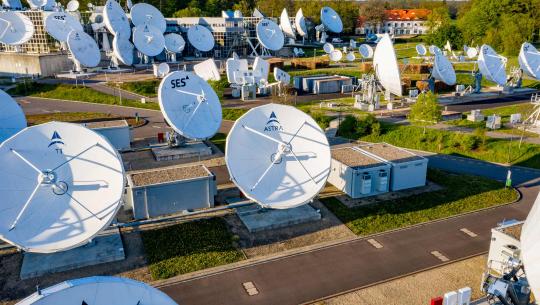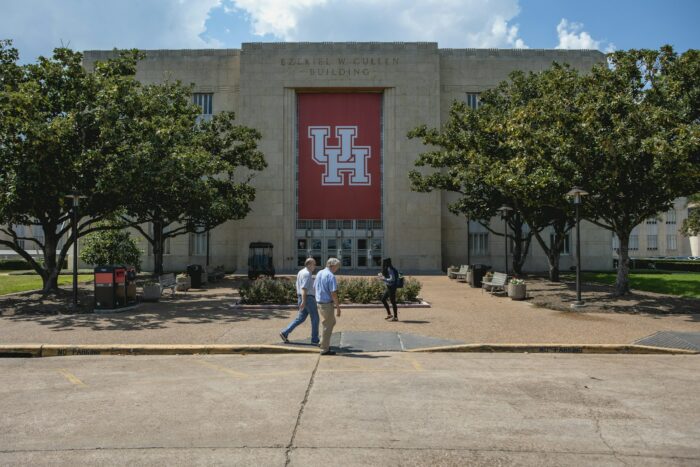Insider Brief:
- SES is set to acquire Intelsat for $3.1 billion, pending regulatory approvals.
- The deal is expected to close in the second half of 2025.
- The new company will have a gross backlog of €9 billion, revenue of €3.8 billion, and adjusted EBITDA of €1.8 billion.
SES, a leading satellite operator, has announced an agreement to acquire Intelsat, another major player in the satellite communications industry, for $3.1 billion (€2.8 billion). This acquisition will create a stronger multi-orbit operator with greater coverage, improved network resilience, and a more comprehensive suite of solutions.
The combination of the two companies is expected to deliver significant synergies, with a net present value of €2.4 billion, representing 85% of the total equity value of the transaction. These synergies will come from cost savings and optimizing the combined satellite fleets and ground infrastructure.
The new company will have a stronger financial profile, with a gross backlog of €9 billion, revenue of €3.8 billion, and adjusted EBITDA of €1.8 billion. This will support future investment in network infrastructure, customer solutions, and new business opportunities.
The acquisition is expected to be free cash flow accretive to SES from the first year and deliver an internal rate of return of more than 10%. The transaction is subject to regulatory approvals and is expected to close in the second half of 2025.
Trending: Consolidation in the satellite industry
The deal is part of a broader trend of consolidation in the satellite industry, as many companies look to gain scale to better compete with the likes of Elon Musk’s Starlink and Amazon’s Project Kuiper.
Some analysts have raised concerns the combined company may still struggle to close the gap with its U.S. rivals, while also being saddled with high debt as reported by Reuters. These concerns resulted in SES’s Paris-listed shares dropping 12% to its lowest price ever – 4.36 euros.
The new company will be headquartered in Luxembourg and maintain a presence in the United States. It will have a fleet of more than 100 geostationary Earth orbit (GEO) and 26 medium Earth orbit (MEO) satellites, which is still significantly smaller than Starlink’s constellation of around 5,800 satellites.
Other recent and notable acquisitions in the high-level satellite communications market contributing to this trend include:
2023: Bayanat, an AI and geospatial solutions provider, and Yahsat, a UAE-based satellite operator, merged to establish a new entity named Space42. The combined company boasts an implied market capitalization of approximately $4 billion, based on the share prices of the two entities. This merger was geared towards creating a vertically integrated, AI-powered space technology firm capable of seizing opportunities across satellite communications, geospatial solutions, mobility, and IoT.
2022: Eutelsat Communications, a prominent French satellite operator, finalized its acquisition of UK-based satellite company OneWeb in an all-share deal valued at $3.4 billion. This merger resulted in the first integrated Geostationary Orbit (GEO) and Low Earth Orbit (LEO) satellite operator. The combined company leverages Eutelsat’s 36-strong fleet of GEO satellites and OneWeb’s expanding LEO constellation of 428 satellites which was in orbit prior to the acquisition.
2021: Viasat’s acquisition of Inmarsat for $7.3 billion combined both companies’ complementary satellite, spectrum, and terrestrial assets. This enabled them to deliver high-speed and reliable connectivity across various markets, including maritime, aviation, government, and consumer. The transaction involved Inmarsat’s shareholders receiving $551 million in cash and approximately 46.36 million shares of Viasat common stock, representing around 37.6% of the total shares on a fully diluted basis.

Overall, SES’ acquisition of Intelsat is expected to create a stronger player in the satellite communications industry, but the challenges of competing with the scale and resources of U.S. rivals remain.
Adel Al-Saleh, CEO of SES shared his optimistic outlook, commenting, “Going forward, customers will benefit from a more competitive portfolio of solutions with end-to-end offerings in valuable Government and Mobility segments, combined with value-added, efficient, and reliable offerings for Fixed Data and Media customers. This combination is also positive for our supply chain partners and the industry in creating new opportunities as satellite-based solutions become an increasingly integral part of the wider communications ecosystem.
Our expanded business will deliver sustained EBITDA growth and strong cash generation, in turn supporting incremental profitable investment in capabilities and solutions to fulfil rapidly expanding and evolving customer demand while also delivering sustained returns to shareholders.”
Image credit: SES
Share this article:








